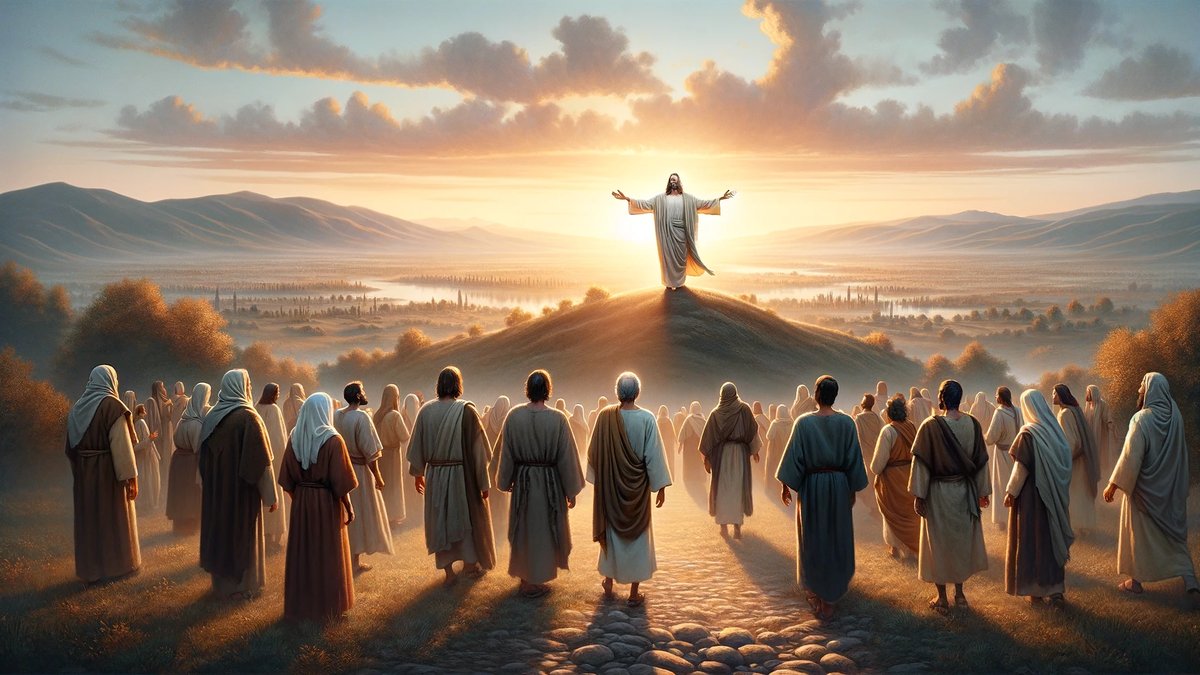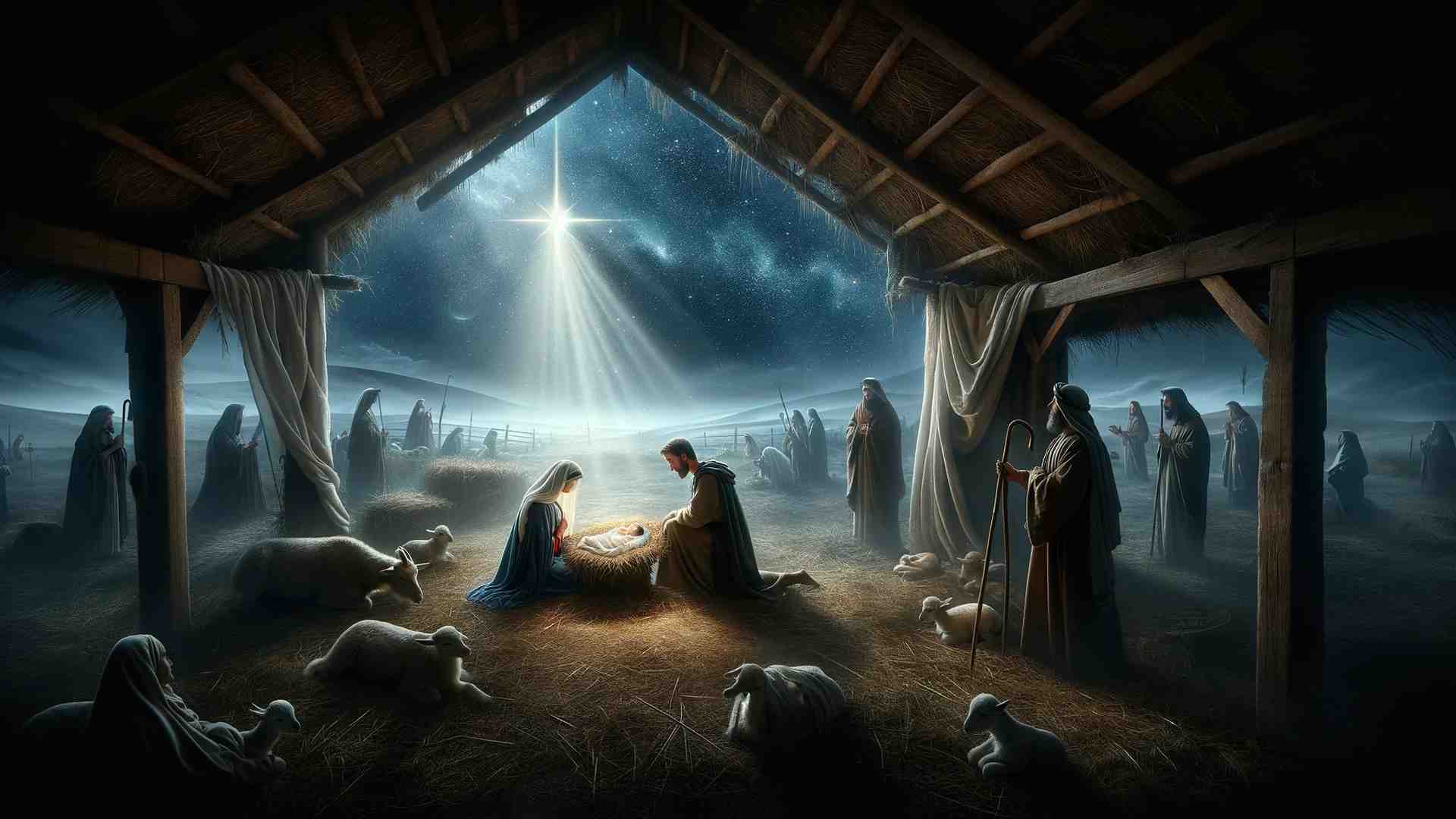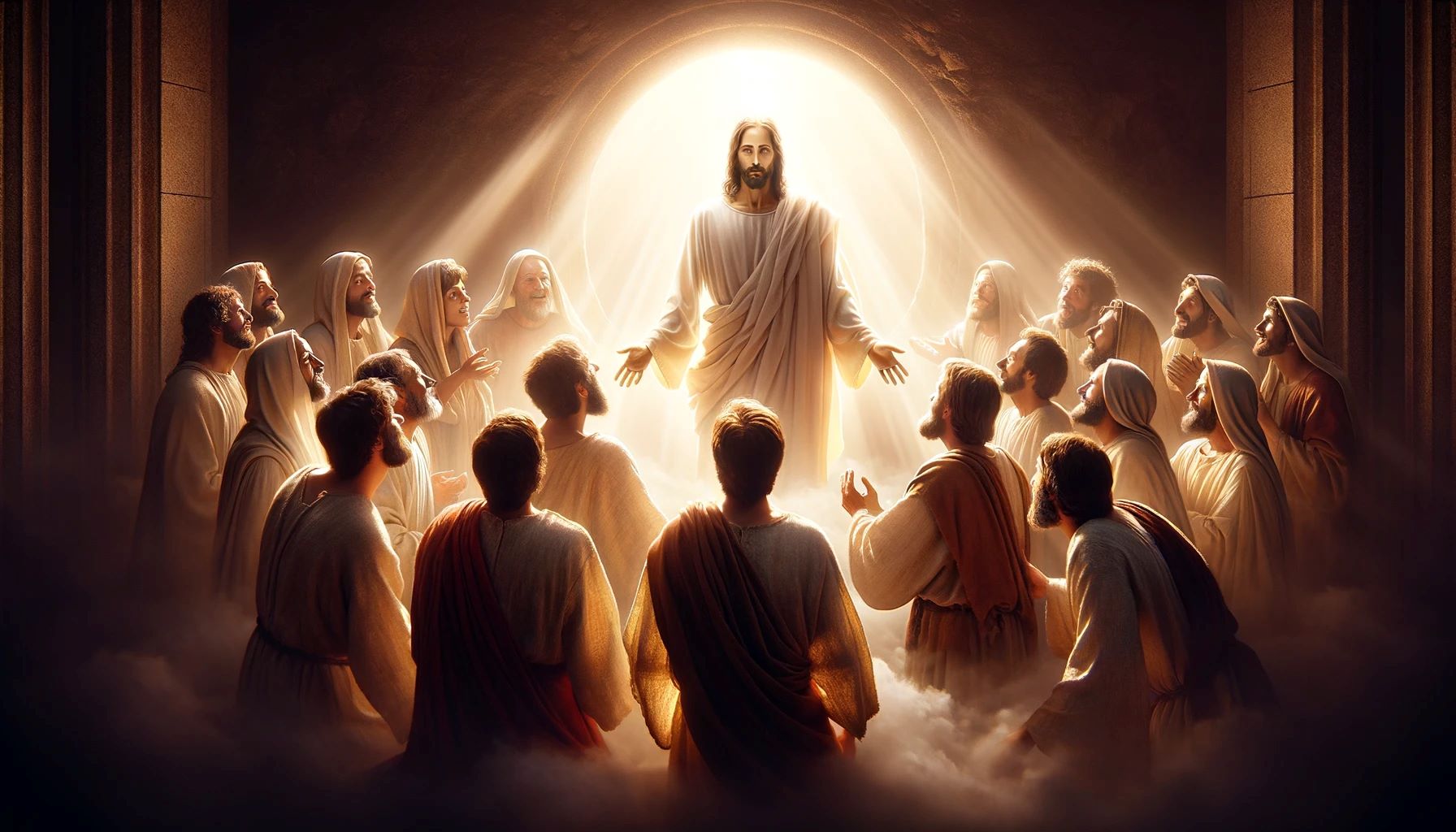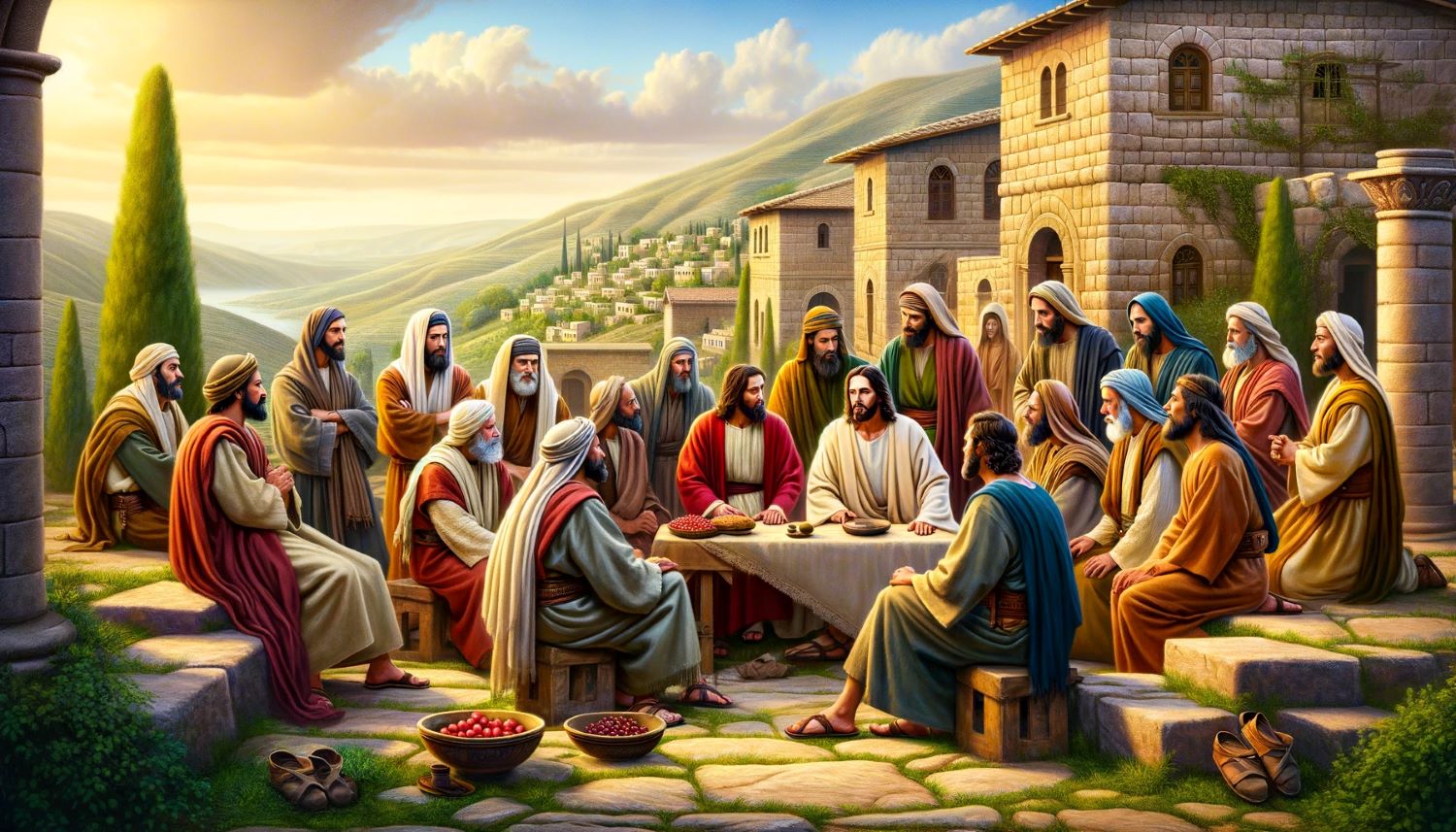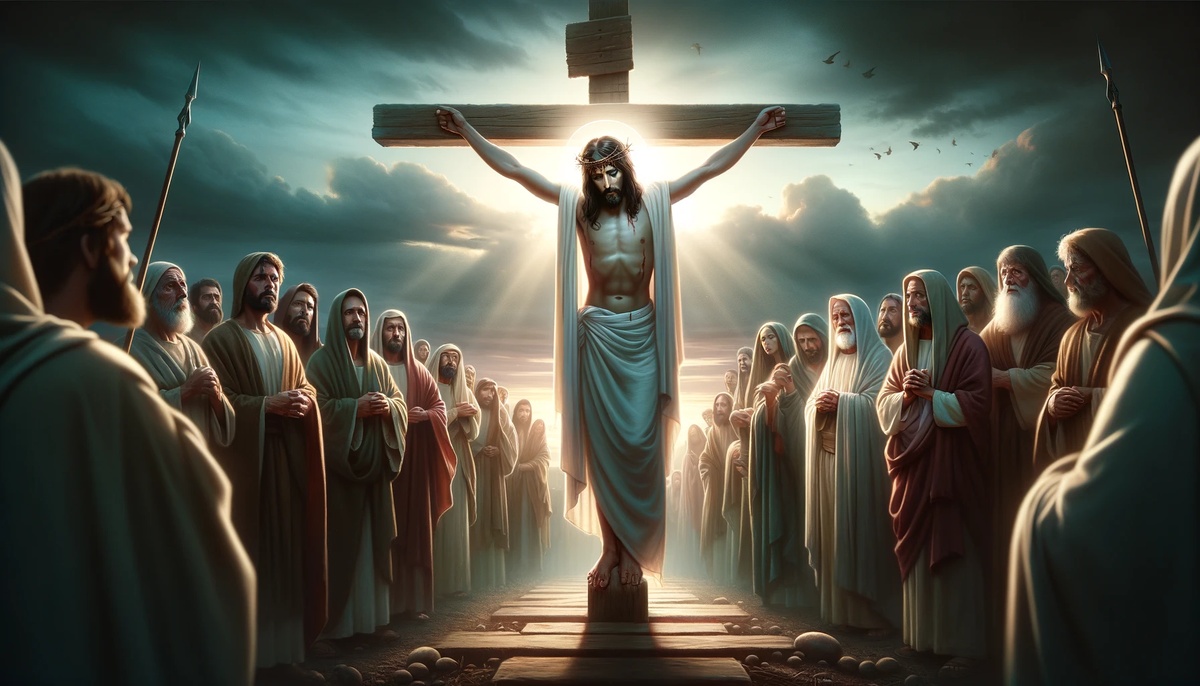Home>Christian Videos>Bible Stories>Why Don’t The Jewish Believe In Jesus Christ


Bible Stories
Why Don’t The Jewish Believe In Jesus Christ
Published: March 3, 2024
Peter Smith, Editorial Director at Christian.net, combines deep insights into faith, politics, and culture to lead content creation that resonates widely. Awarded for his contributions to religious discourse, he previously headed a major organization for religious communicators, enhancing dialogue on faith's societal impacts.
Discover the reasons behind the Jewish belief about Jesus Christ and explore the significance of this perspective in Bible stories. Uncover the historical and cultural context that shapes their faith.
(Many of the links in this article redirect to a specific reviewed product. Your purchase of these products through affiliate links helps to generate commission for Christian.net, at no extra cost. Learn more)
Table of Contents
The Historical Context of Jewish Belief
-
Ancient Origins: The Jewish faith has deep roots in ancient history, dating back thousands of years. It is a monotheistic religion, meaning that Jews believe in one God. The Torah, which is the central reference of the religious Judaic tradition, contains the foundational narrative of the Jewish people. This narrative includes the covenant between God and the patriarch Abraham, the Exodus from Egypt, and the giving of the Torah at Mount Sinai.
-
Exile and Diaspora: Throughout history, the Jewish people have faced periods of exile and dispersion, known as the Diaspora. This has led to the development of diverse Jewish communities around the world, each with its own customs and traditions. The experience of exile has deeply influenced Jewish belief and practice, shaping the way in which Jews understand their relationship with God and the world around them.
-
Persecution and Resilience: Jews have faced persecution and discrimination throughout history, including the destruction of the Second Temple in Jerusalem, the Spanish Inquisition, and the Holocaust. These experiences have had a profound impact on Jewish belief, shaping their understanding of suffering, resilience, and the pursuit of justice.
-
Cultural and Intellectual Contributions: Despite the challenges they have faced, Jewish people have made significant cultural and intellectual contributions to the world. From the development of the Talmud to the achievements of Jewish scientists, writers, and artists, the Jewish faith has been a source of inspiration and creativity throughout history.
-
Continuity and Change: Throughout the centuries, Jewish belief has evolved and adapted to changing historical and cultural contexts. While the core tenets of the faith have remained constant, the way in which these beliefs are expressed and practiced has varied across different periods and geographic locations. This dynamic relationship between continuity and change is a central aspect of Jewish belief and identity.
Read more: Why Believe In Jesus Christ
The Jewish Messianic Expectation
-
Definition of Messiah: In Jewish belief, the Messiah is a figure who is anticipated to bring about a golden age of peace, prosperity, and spiritual redemption for the Jewish people and, by extension, the entire world. The concept of the Messiah is deeply rooted in the Hebrew Bible, where various prophecies and promises foretell the coming of this anointed savior.
-
Messianic Prophecies: Throughout the Hebrew Bible, there are numerous prophecies that describe the characteristics and actions of the Messiah. These include the restoration of the Davidic kingdom, the ingathering of exiled Jews, the universal knowledge of God, and the establishment of a time of unprecedented harmony and righteousness.
-
Diverse Interpretations: Over time, different Jewish movements and scholars have interpreted the concept of the Messiah in diverse ways. While some have emphasized a literal, earthly figure who will fulfill specific prophecies, others have adopted a more symbolic or spiritual understanding of the Messianic age.
-
Hope and Longing: The Messianic expectation has been a source of hope and longing for the Jewish people throughout their history. In times of hardship and oppression, the belief in a future Messianic era has provided comfort and resilience, inspiring Jews to persevere in the face of adversity.
-
Continued Relevance: Despite the passage of centuries, the Messianic expectation remains a central tenet of Jewish belief. It serves as a reminder of the enduring faith in God's ultimate plan for the world and the ongoing quest for justice, compassion, and redemption.
-
Interfaith Dialogue: The concept of the Messiah has also been a point of dialogue and discussion between Jewish and Christian communities. While Christians believe that Jesus of Nazareth fulfilled the role of the Messiah, Jews maintain their expectation of a future Messianic figure who will bring about the fulfillment of the prophecies in their own way.
The Messianic expectation is a foundational aspect of Jewish belief, reflecting the enduring faith in a future era of peace and righteousness. It continues to shape the spiritual outlook of the Jewish people and serves as a source of inspiration and resilience in the face of historical challenges.
The Role of Jesus in Jewish Scripture
-
Absence in Jewish Scripture: In Jewish belief, the role of Jesus in Jewish scripture is a topic of significant divergence from Christian interpretation. While Jesus is a central figure in Christian theology, he is not recognized as the Messiah in Jewish scripture. The Hebrew Bible, or Tanakh, does not contain references to Jesus as the anointed savior or the fulfillment of Messianic prophecies. This fundamental difference in interpretation has contributed to the distinct theological perspectives of Judaism and Christianity.
-
Messianic Prophecies: According to Jewish tradition, the Messianic prophecies outlined in the Hebrew Bible describe a future figure who has not yet appeared in history. These prophecies include specific criteria and events that the Messiah is expected to fulfill, such as the restoration of the Davidic kingdom, the ingathering of exiled Jews, and the establishment of universal peace and knowledge of God. While Christians believe that Jesus fulfilled these prophecies, Jews maintain that the promised Messiah is yet to come.
-
Divergent Views: The divergent views on the role of Jesus in Jewish scripture have been a point of theological contention and dialogue between Jewish and Christian communities. While Christians interpret certain passages of the Hebrew Bible as foreshadowing the coming of Jesus, Jews interpret these same passages in different ways, emphasizing alternative meanings and contexts that do not align with the Christian understanding of Jesus' role.
-
Historical Context: Understanding the role of Jesus in Jewish scripture requires consideration of the historical context in which the Hebrew Bible was composed. The texts of the Hebrew Bible were written over a span of centuries by various authors, reflecting the religious, cultural, and political dynamics of ancient Israel. The absence of explicit references to Jesus in these texts reflects the distinct religious worldview of the Jewish people at the time of their composition.
-
Interpretive Traditions: Jewish interpretive traditions, such as Midrash and Talmudic commentary, have provided nuanced perspectives on the Hebrew Bible, offering insights into the meanings and implications of its passages. These interpretive traditions have contributed to the development of Jewish theology and the understanding of Messianic prophecies, shaping the way in which Jesus is viewed within the context of Jewish scripture.
-
Continued Dialogue: The role of Jesus in Jewish scripture remains a topic of ongoing dialogue and exploration within interfaith discussions. While the theological disparities between Judaism and Christianity are significant, efforts to understand and respect each other's perspectives have led to constructive engagement and mutual learning.
The role of Jesus in Jewish scripture is a complex and multifaceted topic that reflects the divergent theological perspectives of Judaism and Christianity. Understanding the distinct interpretations of Messianic prophecies and the historical context of the Hebrew Bible is essential for appreciating the differing views on Jesus' role within these religious traditions.
The Jewish Perspective on Jesus' Teachings
-
Divergence from Rabbinic Tradition: From a Jewish perspective, the teachings attributed to Jesus in the New Testament are viewed within the context of the broader Rabbinic tradition. While Jesus' ethical and moral teachings may resonate with certain aspects of Jewish ethical thought, the theological and doctrinal disparities between Christianity and Judaism have led to distinct interpretations of his teachings within the Jewish community.
-
Ethical and Moral Insights: Jewish scholars and theologians have engaged with Jesus' teachings to discern ethical and moral insights that align with Jewish values. Concepts such as love for one's neighbor, compassion for the marginalized, and the pursuit of justice are recognized as shared ethical principles between Judaism and Christianity. However, the theological implications and doctrinal frameworks surrounding these teachings differ significantly between the two faith traditions.
-
Interpretive Perspectives: Within Jewish scholarship, there exists a spectrum of interpretive perspectives on Jesus' teachings. Some scholars approach his teachings as historical and cultural artifacts of Second Temple Judaism, seeking to understand the social and religious context in which they emerged. Others engage with his teachings through comparative religious studies, exploring the intersections and divergences between Jewish and Christian ethical thought.
-
Theological Disparities: The theological disparities between Judaism and Christianity shape the Jewish perspective on Jesus' teachings. While Christians regard Jesus as the divine Son of God and the central figure of salvation, Jews maintain a monotheistic understanding of God and do not recognize Jesus as a divine entity. This fundamental difference in theological interpretation influences the way in which Jesus' teachings are situated within the broader framework of Jewish belief and practice.
-
Interfaith Dialogue and Understanding: The Jewish perspective on Jesus' teachings has been a point of dialogue and exploration within interfaith contexts. Efforts to understand and respect the divergent interpretations of Jesus' teachings have fostered constructive engagement between Jewish and Christian communities. While theological disparities persist, the exploration of shared ethical values and the respectful exchange of perspectives have contributed to mutual understanding and appreciation.
-
Continued Reflection and Engagement: Jewish engagement with Jesus' teachings reflects the ongoing process of theological reflection and dialogue within the Jewish community. As part of this dialogue, Jewish scholars and religious leaders continue to explore the ethical and moral dimensions of Jesus' teachings while affirming the distinct theological identity of Judaism. This ongoing reflection underscores the dynamic nature of interfaith dialogue and the pursuit of mutual understanding.
The Jewish perspective on Jesus' teachings encompasses a nuanced engagement with ethical, moral, and theological dimensions. While situated within the broader Rabbinic tradition, this perspective reflects the ongoing dialogue and exploration of shared values and theological disparities between Judaism and Christianity.
The Impact of Christian Persecution on Jewish Belief
-
Historical Trauma: Christian persecution has had a profound and enduring impact on Jewish belief, shaping the collective memory and historical consciousness of the Jewish people. Throughout history, Jews have faced persecution, discrimination, and violence at the hands of Christian authorities and communities. From the Crusades and the Spanish Inquisition to the pogroms and expulsions in Eastern Europe, the experience of persecution has left a deep imprint on the psyche of the Jewish community.
-
Cultural and Religious Resilience: Despite the hardships endured, Jewish belief has demonstrated remarkable resilience in the face of Christian persecution. The preservation of religious traditions, cultural practices, and communal solidarity has been a testament to the enduring strength of Jewish faith. The commitment to upholding religious observance and passing down traditions from generation to generation has been a response to the challenges posed by persecution.
-
Theological Reflection: Christian persecution has prompted theological reflection within the Jewish community, leading to the development of theological responses to suffering and injustice. The exploration of theodicy, the problem of evil, and the meaning of historical trauma has been an integral part of Jewish theological discourse. The quest for understanding the relationship between God and human suffering has been a central theme in Jewish belief, shaped in part by the historical experience of persecution.
-
Interfaith Relations: The impact of Christian persecution on Jewish belief has also influenced interfaith relations and dialogue. Efforts to address historical grievances, promote mutual understanding, and foster reconciliation between Jewish and Christian communities have been significant in the contemporary context. The acknowledgment of past injustices and the pursuit of constructive engagement have contributed to the ongoing process of healing and reconciliation.
-
Cultural Memory and Identity: Christian persecution has become a foundational element of Jewish cultural memory and identity. The commemoration of historical events such as the Holocaust and other instances of persecution serves as a reminder of the enduring resilience and determination of the Jewish people. These collective memories have been integrated into Jewish belief, shaping the way in which Jews understand their place in the world and their relationship with God.
-
Contemporary Implications: The impact of Christian persecution on Jewish belief continues to have contemporary implications, influencing the way in which Jews navigate their relationship with Christian communities and the broader societal context. The pursuit of religious freedom, social justice, and the prevention of religious-based discrimination are ongoing concerns that reflect the enduring legacy of historical persecution.
The impact of Christian persecution on Jewish belief is a complex and multifaceted phenomenon that has left a lasting imprint on the religious, cultural, and historical identity of the Jewish people. The resilience, theological reflection, and interfaith engagement that have emerged in response to persecution underscore the enduring strength and vitality of Jewish belief.

